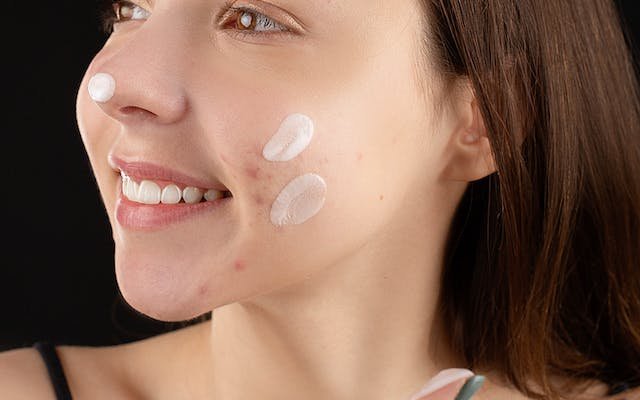Acne is common skin condition that affects individuals of all ages, often leading to significant distress. A comprehensive approach to acne involves understanding and implementing effective treatment options and skincare routines. This article delves into the various treatments available for acne and outlines skincare routines beneficial for acne-prone skin.

Understanding Acne
Before diving into treatment options, it’s crucial to understand what acne is. Acne occurs when hair follicles become clogged with oil and dead skin cells, leading to whiteheads, blackheads, or pimples. It is most common among teenagers, though it affects people of all ages.
Over-the-Counter (OTC) Treatments
Salicylic Acid and Benzoyl Peroxide
For mild acne, OTC treatments can be effective. Products containing salicylic acid or benzoyl peroxide are popular choices. Salicylic acid helps unclog pores and reduces swelling and redness. Benzoyl peroxide kills bacteria and slows down the production of oil in the skin.
Alpha Hydroxy Acids (AHAs)
AHAs, such as glycolic acid and lactic acid, are used to remove dead skin cells and reduce inflammation. They also help improve acne scars’ appearance and increase the effectiveness of other skincare products by enhancing absorption.
Prescription Treatments
Topical Retinoids
Retinoids, derived from vitamin A, are used in more severe acne cases. They promote cell turnover and prevent the plugging of hair follicles. Common examples include tretinoin, adapalene, and tazarotene.
Antibiotics
Topical or oral antibiotics are used to combat excess skin bacteria, reducing redness and inflammation. However, they are typically used for a short duration to prevent antibiotic resistance.
Hormonal Treatments
For women, hormonal treatments such as oral contraceptives or anti-androgen agents can be effective in treating acne caused by hormonal imbalances.
Isotretinoin
For severe, cystic acne, isotretinoin (Accutane) may be prescribed. It’s a powerful medication that significantly reduces oil production and inflammation but has considerable potential side effects.
Skincare Routines for Acne-Prone Skin
Cleansing
Gentle cleansing twice a day is essential. Harsh scrubs can irritate the skin and exacerbate acne. Non-comedogenic, oil-free cleansers are recommended.
Moisturizing
Moisturizers help maintain skin hydration, which is vital even for oily, acne-prone skin. Look for oil-free, non-comedogenic moisturizers that won’t clog pores.
Sun Protection
Sunscreen is crucial, especially when using acne treatments that make the skin more sensitive to the sun. A broad-spectrum sunscreen with an SPF of 30 or higher is advisable.
Avoid Picking or Squeezing
Picking or squeezing pimples can lead to scars and infections. It’s essential to resist the urge to touch acne-prone areas.
Regular Exfoliation
Exfoliating with a gentle product can remove excess dead skin cells and help prevent clogged pores. However, over-exfoliation can irritate the skin and should be avoided.
Non-Comedogenic Makeup
If makeup is worn, it should be non-comedogenic to prevent clogging of pores.
Conclusion
Treating acne effectively requires a balanced approach that combines suitable treatment options with a consistent skincare routine. While OTC products may suffice for mild acne, more severe cases may require prescription treatments. Understanding the type of acne and skin type is critical in choosing the right treatment and skincare products. In all cases, patience and consistency are key, as acne treatments can take several weeks to show results. If acne persists or worsens, consulting a dermatologist is recommended for a tailored treatment plan.
Also Read: Naturally Remove Acne Scars in a Week
